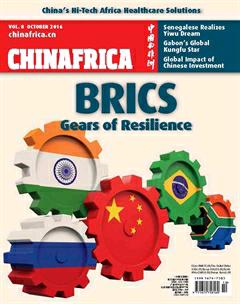Hope for Somalia
THINK Horn of Africa, and in particular Somalia, and inevitably gloomy images of civil war and Al-Shabaab extremism come to mind. But 2016 is the year the often embattled country will go to the parliamentary polls and despite much speculation about extending the current governments mandate that expired in September, assurances have been given by the countrys federal institutions that this wont happen.
The Somali National Leaders Forum (NLF), which includes the countrys President Hassan Sheikh Mohamud, has been hard at work behind the scenes ironing out the election process.
According to the Federal Indirect Electoral Implementation Team (FIEIT), the countrys electoral body, presidential elections will be held on October 30. Head of FIEIT Omar Mohamed Abdulle said the presidential vote will take place once members of the upper and lower parliamentary houses have been selected between September 24 and October 10. These dates have been endorsed by the NLF, who also said 30 percent of all parliamentary seats must be reserved for women. Should this federal system proceed as planned, it will pave the way for Somalia to hold its first free and fair one-person, one-vote elections by 2020. Somali leaders have agreed to adopt a political roadmap for the period 2016-20.
The countrys last elections took place in 2012. Leaders in East Africa are clearly cognizant of the need to have stability in Somalia, not only for the country itself, but the region as a whole. They recently held a summit in Mogadishu, calling on all Somalis to participate in the 2016 electoral process with the hope that free and fair elections are conducted within the agreed time lines. Security will be a major challenge as elections will take place both within and outside the capital Mogadishu, where reports of Al-Shabaab threatening those taking part in the electoral process are already being made. In this regard leaders have asked the African Union (AU) Mission in Somalia (AMISOM) to be responsible for providing security during the elections. At the summit, Kenyan President Uhuru Kenyatta gave an assurance that the international community and partners are ready to support Somalia to ensure that the elections are held in a timely manner and in accordance to the will and wishes of the Somali people. Somalias international partners, that include the United Nations, AU, European Union and Intergovernmental Authority on Development, have also praised the election process, emphasizing the need for transparency and credibility. They have also committed to funding the process, a major concern for the country. Somali media report that international partners will fund approximately 60 percent of the required election budget, with the remainder being generated from candidate registration fees and money from the Federal Budget.
However, critics of the election plan say it is too ambitious and lacks inclusivity of elders and tribal leaders, despite it being an historic opportunity to, in fact, ensure more representative governance to Somalia and to reflect the countrys diversity. Despite all role players agreeing that the process will be more legitimate than the last 2012 elections, concerns have been raised over the security and funding resources required. Critics say the elections should be held only once guarantees can be given on these two aspects. If it is given, as is the case now, the planning period still needs to be extended to a more realistic election date of early 2017.
For a country fragmented by decades of conflict, waiting is no longer an option. The opportunity must be taken.

